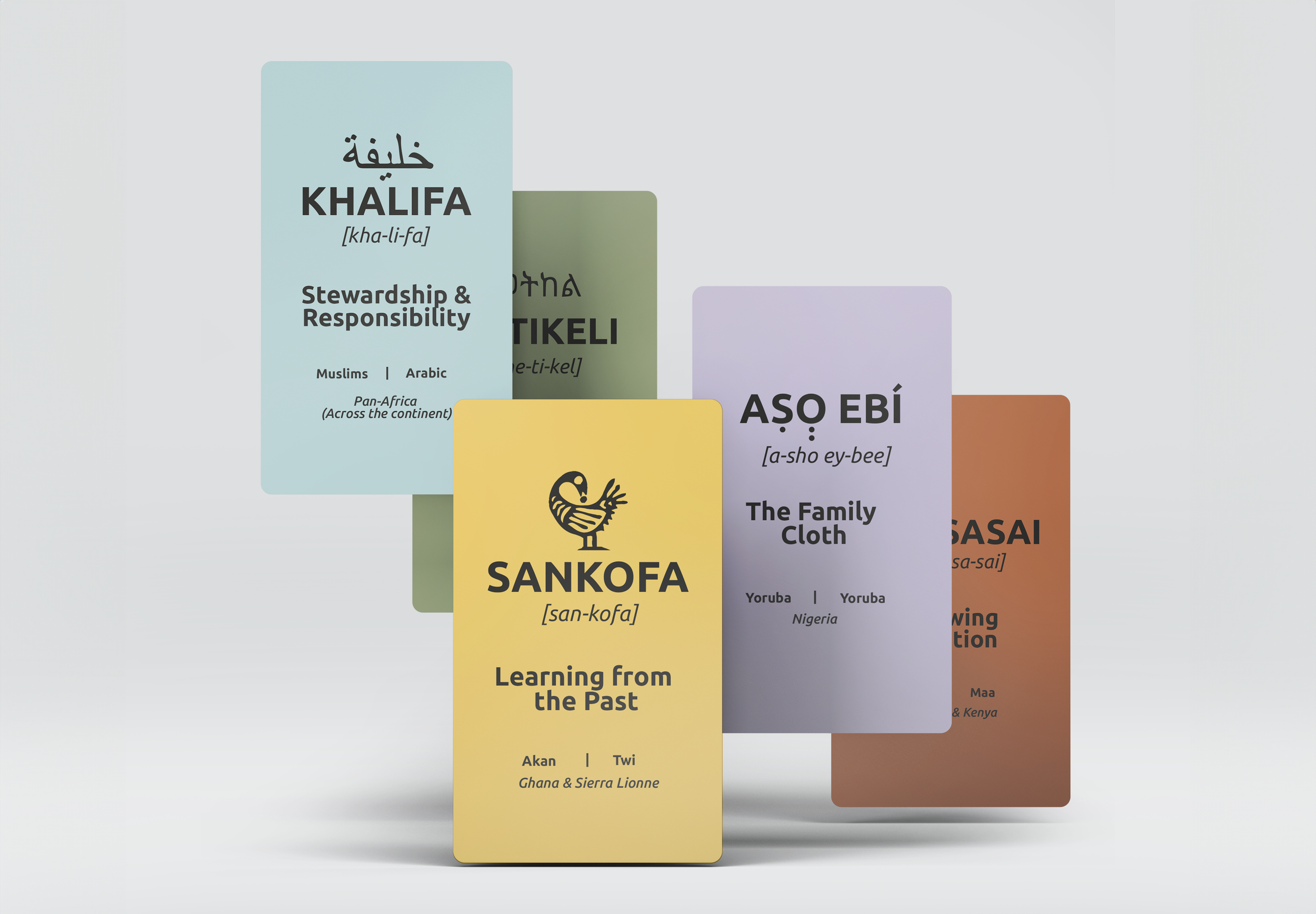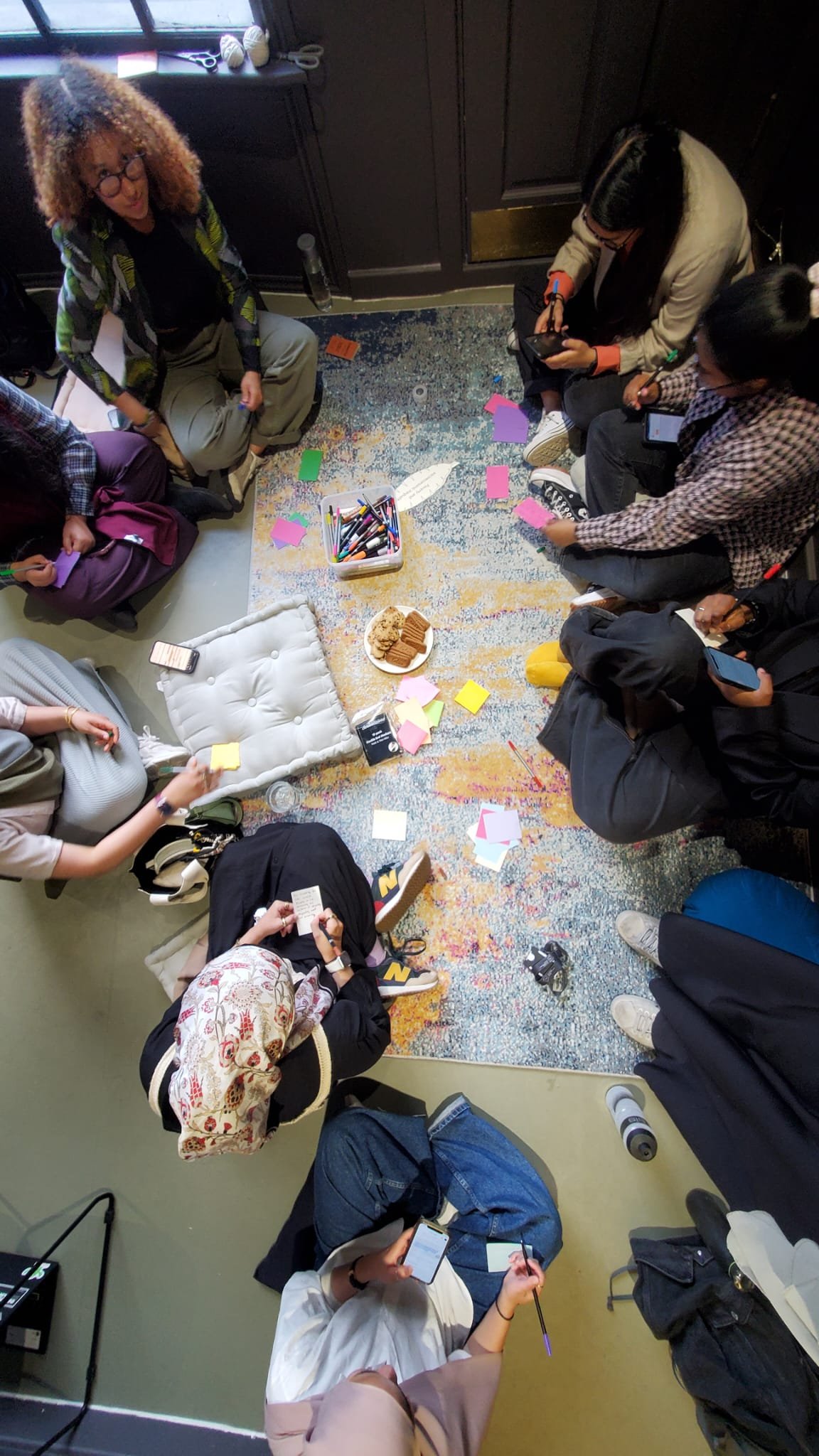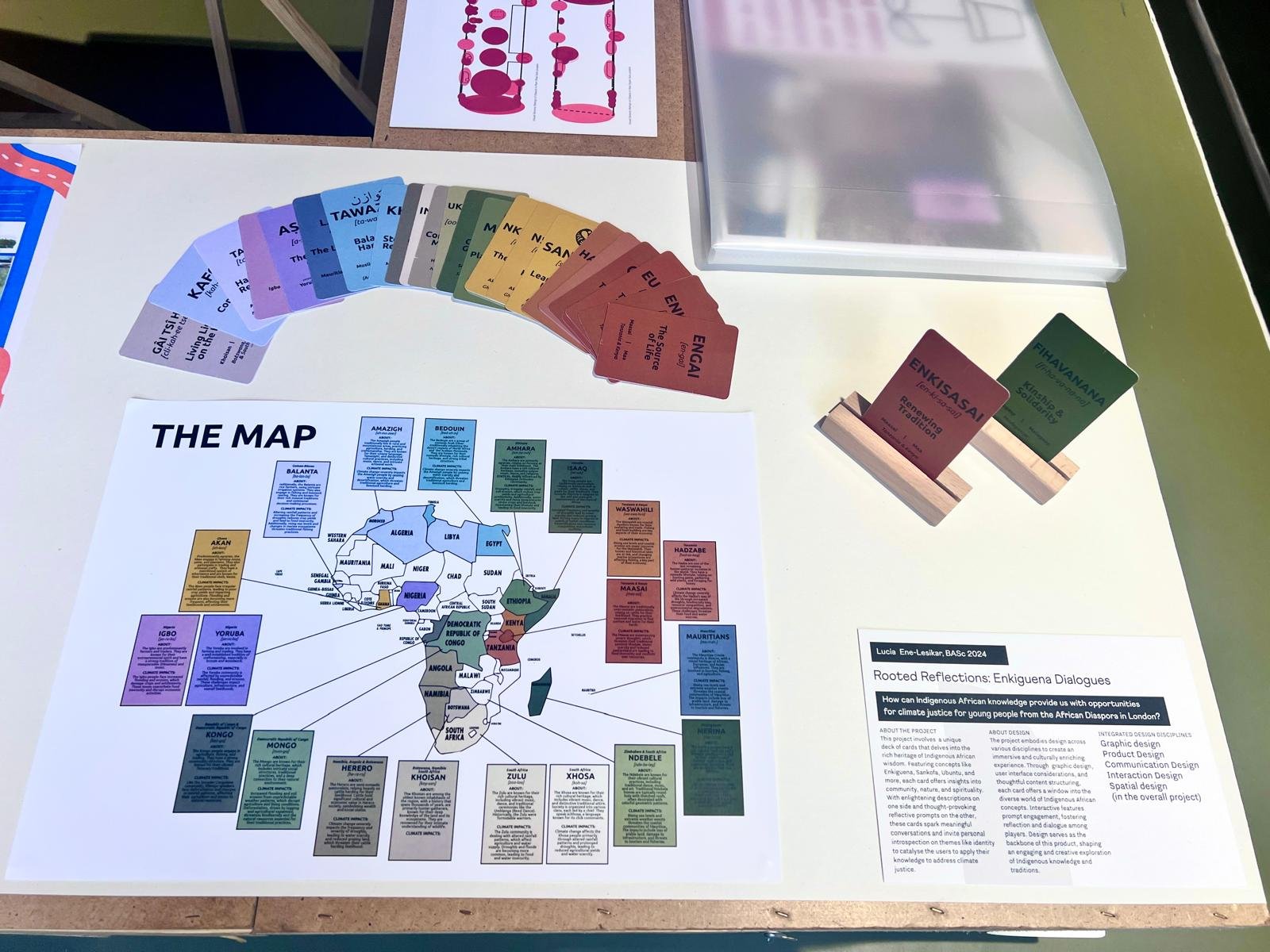2024
Roots & Reflections: Enkiguena Dialogues
Can Indigenous Knowledge Provide Us With Opportunities for Climate Justice for Young People in the African Diaspora in London?
This project explores how indigenous African knowledge, specifically focusing on Maasai practices, can provide opportunities for climate justice for young people from the African diaspora in London. Using a mixed methods approach, including qualitative interviews, thematic analysis, and quantitative data science, the research investigates the intersection of indigenous knowledge, climate change, and youth engagement.
In collaboration with The Africa Centre, the project aims to develop strategies that integrate traditional ecological wisdom with modern urban sustainability efforts. Outputs include a thematic card deck, "Roots & Reflections: Enkiguena Dialogues," designed to educate and engage young people in meaningful climate action discussions.
Rooted in Literature
This research is deeply rooted in existing literature on Indigenous knowledge systems, climate justice, and African philosophies while building upon a long intellectual history that highlights the importance of ecological wisdom. It draws on works like Robin Wall Kimmerer's "Braiding Sweetgrass" and Tyson Yunkaporta's "Sand Talk", both of which emphasize the power of Indigenous knowledge in addressing modern environmental challenges.
These works, along with literature on decolonizing environmental discourse, illustrate the gap in academic frameworks that often leave out African Indigenous knowledge. This project bridges that gap by bringing forward African concepts and Indigenous perspectives that are frequently overlooked in academic circles, making a case for their integration into discussions about sustainability and climate action. It emphasizes the role of traditional ecological practices and philosophies in promoting a holistic, culturally inclusive approach to climate justice.
Qualitative Methods
In-depth interviews were conducted with 24 young people (aged 18-30) from London, representing various backgrounds within the African diaspora. Participants were selected using a snowball sampling method to capture a diverse range of perspectives.
The interviews focused on participants' experiences with climate change, their understanding of indigenous knowledge, and potential links between these concepts. These insights were then analysed using thematic analysis to identify recurring themes and patterns. Themes such as community, environmental stewardship, and the role of indigenous knowledge in climate action emerged from the analysis, providing insights into how these concepts resonate with the participants.
Quantiative Methods
A game theory analysis was conducted to model stakeholder interactions and potential outcomes for implementing indigenous knowledge-based strategies. This involved reviewing existing interventions by The Africa Centre and developing hypothetical scenarios to explore the dynamics between various stakeholders, such as community organisations, local authorities, and the diaspora youth.
Design Thinking Process
The insights from the qualitative and quantitative analyses informed a design thinking process. This iterative process involved brainstorming, prototyping, and testing solutions with a focus group on climate and marginalised identity. The key output is the "Roots & Reflections: Enkiguena Dialogues" card deck, which serves as an educational tool to introduce indigenous African concepts and foster discussions on climate justice, alongside a strategy and a map.
The Products
The primary output of this project is the "Roots & Reflections: Enkiguena Dialogues" card deck, designed to educate and engage young people on indigenous African concepts and their relevance to climate justice. The deck combines Maasai and other African indigenous knowledge with reflective prompts to foster discussions on identity, nature, and sustainability. Additionally, a map providing insights into different Indigenous Tribes from across the continent and how they are feeling the impacts of climate change was developed. These outputs aim to empower young people with knowledge and tools to actively participate in climate action, fostering a deeper connection to their cultural heritage and environmental responsibility.
What’s Next?
I’m hoping to take this further, working with the Young Africa Centre to implement my strategy and using the cards and developing events and workshops to start conversations around identity, cultural heritage, and the environment, engaging youth from the African diaspora and beyond. I am also looking to start a podcast and create a platform to continue developing the work.





